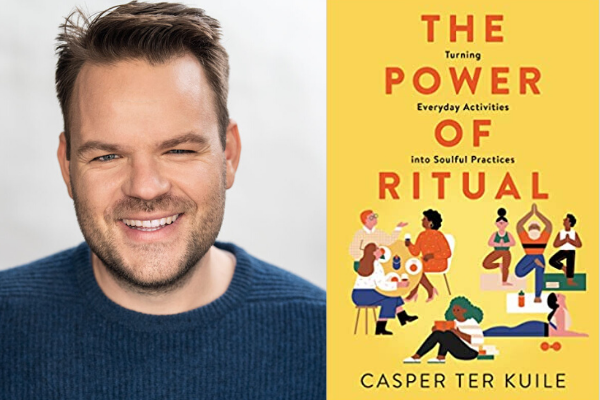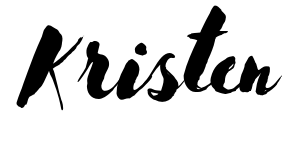We hear a lot about habits these days. But recently I read the book, The Power of Ritual: Turning Everyday Activities into Soulful Practices by Casper ter Kuile and it got me really thinking about the difference between habits and rituals.
While they share some of the same DNA, rituals are truly distinct from habits. To put it simply,
repetition without intention and attention is a habit. But when you bring your presence and heart to an activity, that’s a ritual. Plus, there is ceremony to a ritual that gives it meaning and purpose.

Besides being the author of his brand-new book, The Power of Ritual: Turning Everyday Activities into Soulful Practices, Casper ter Kuile is a Harvard Divinity School fellow and cohost of the popular Harry Potter and the Sacred Text podcast. He’s also the co-author of How We Gather, and his work has been featured in the New York Times, Vice, The Atlantic, and The Washington Post. He holds a Masters of Divinity and Public Policy from Harvard University.
I absolutely loved speaking with Casper about how rituals can bring more happiness, meaning and purpose to our lives. I’m excited to share this conversation with you.
Casper’s book, The Power of Ritual: Turning Everyday Activities into Soulful Practices, is now available wherever you buy books. I so recommend you read it. And if you want to learn more about Casper, you can connect with him on his website at www.caspertk.com.
FIVE TAKEAWAYS
- We create rituals by starting with things you are already doing. By simply tuning into our intention changes our approach and our experience. Once we have intention, pay attention—be present to the activity. Finally, repeat. By creating this ritual loop in our life—intention, attention, repetition—we start to add more meaning and purpose to our life.
- Rituals are different than habits. Repetition without intention and attention is a habit. But when you bring your full attention and heart to an activity, that’s a ritual. So many aspects of our day can become soulful and heartful when we really think about it.
- Rigor, sincerity, and perhaps ceremony all help create ritual but ritual doesn’t need to be grand. The key is that we do what we are already doing on purpose. Do a ritual audit to see what rituals you have already created and then look to see how you can add more intention and attention.
- Rituals mark transitions, they create closure and they initiate new beginnings. We need them. And in this time of COVID-19, many of us are missing our rituals around endings and beginnings. But we can pivot, as Casper says, because we need to mark these transitions because it’s really important for us to process the emotional experience.
- We all worship something, whether or not we’re aware of it. And while for some people that may be God, for many others its money, power, fame or status. In many ways we’ve lost a sense of what’s really important: family, connection, love, giving, silence. Ritual invites us to appreciate what really matters to us.
SHARE & SUBSCRIBE
Until next time, stay well out there.
